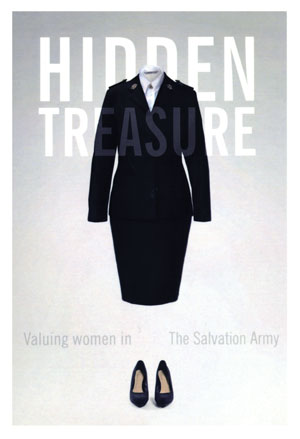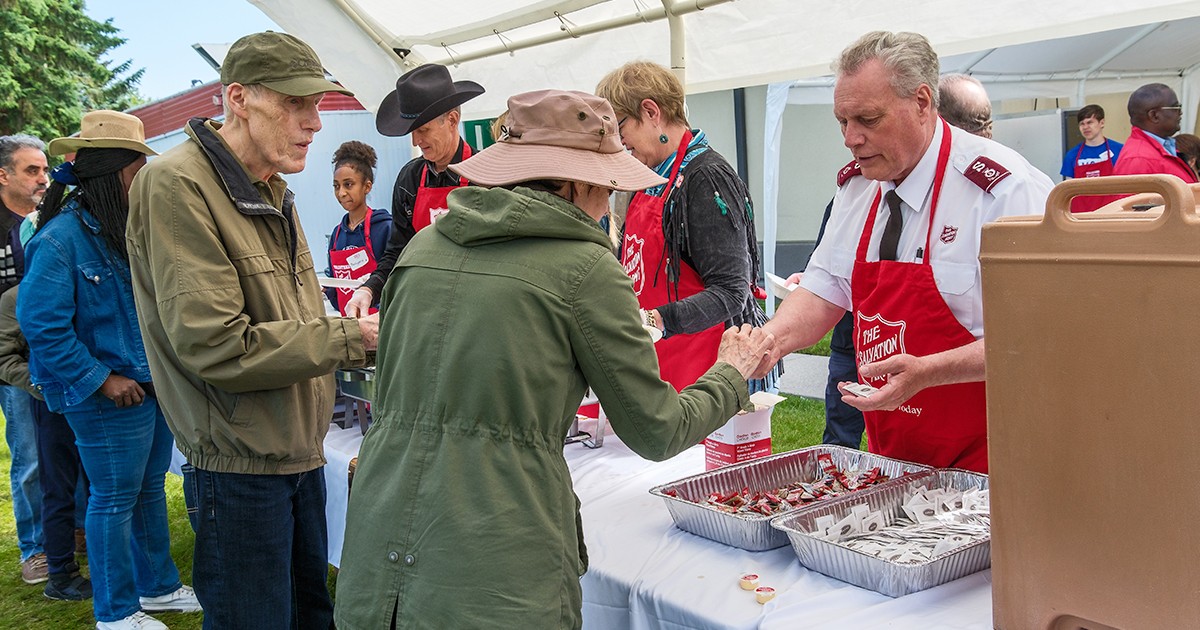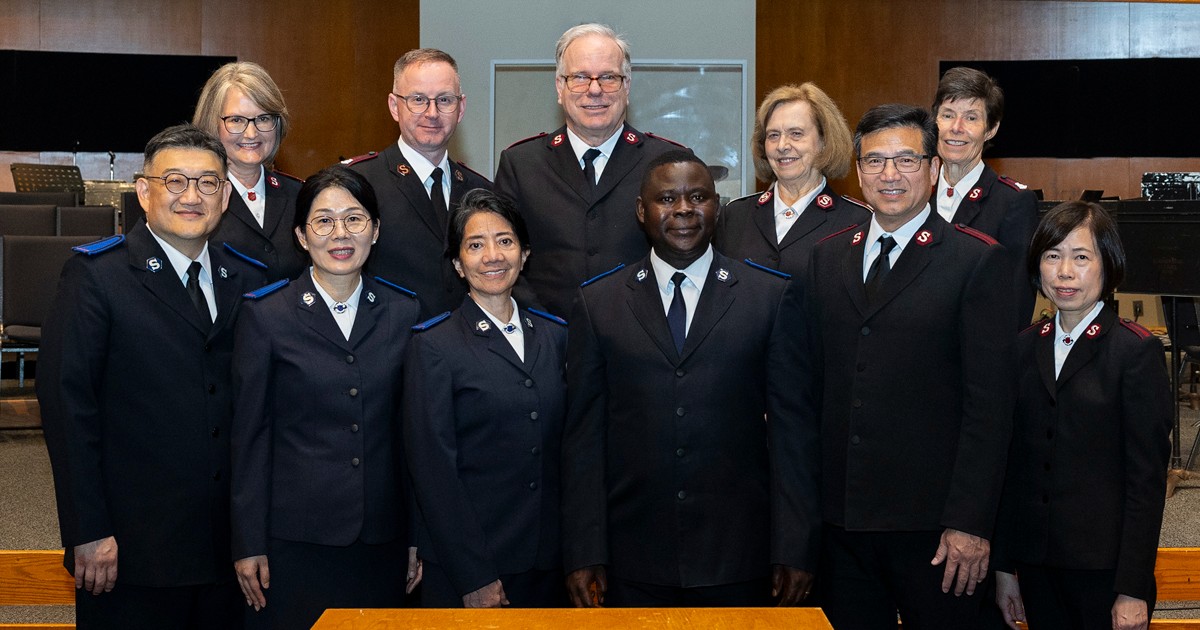 Hidden Treasure, a new compilation of women officers' stories edited by Major Leanne Ruthven, is long overdue. Seeing women officers as hidden treasure waiting to be discovered within The Salvation Army, Major Ruthven ably brings together contributions from a variety of women around the world. The book includes a chapter from the Canada and Bermuda Territory's Major Brenda Murray, who is currently serving in the United Kingdom.
Hidden Treasure, a new compilation of women officers' stories edited by Major Leanne Ruthven, is long overdue. Seeing women officers as hidden treasure waiting to be discovered within The Salvation Army, Major Ruthven ably brings together contributions from a variety of women around the world. The book includes a chapter from the Canada and Bermuda Territory's Major Brenda Murray, who is currently serving in the United Kingdom.
No matter what capabilit ies they have, women officers—particularly married women officers—have been in a virtual blind spot for too long in The Salvation Army. The stories that are shared in Hidden Treasure could be told in any of the 126 countries where the Army operates. They reflect small things that demean and distress married women officers, such as hearing that “decisions were made about me, but communication was never directed to me.” They also reflect large oversights in the way appointments are planned and carried out.
The value of Hidden Treasure is twofold. First, it articulates the significant underutilization of officers, and provides an opportunity to air some of the hurts and disappointments incurred, sometimes unknowingly, at the hands of others. Examples of this may include when a congregation only recognizes male officers as persons of authority, or when the system preferentially recognizes the male spouse as the one whose gifts are worthy of being developed. Second, Hidden Treasure offers role models and examples, showing that the Army's “hidden treasure” syndrome can be overcome, and that part of the responsibility lies with the married women officers themselves. It is an uphill battle that many have solved by leaving officership or, even worse, by checking out while still in ministry. There are other ways, and Major Ruthven's book testifies to this.
Hidden Treasure is a good start. It needs to be expanded into a larger work of some kind, which addresses the delicate interplay between cultural norms, male egos, employee-officer relations and factors such as the variety of giftings, the temporary nature of many officer appointments and the transient nature of child-rearing responsibilities.
Cultural norms can be challenged. As one Indian officer states in the book, “My burden is to bring Indian officer women out of the cultural chains they face.” But The Salvation Army has its own chains. She notes, “Married women were viewed largely as supportive accessories to their husbands.” Unfortunately, this may not only be a statement about the past. Overall, the book cries out for married women officers to be seen as people who are respected and valued—an ideal for all Salvation Army personnel. Only discerning and godly members of our organization can accomplish this, but the book will go a long way to making all Salvationists aware of the shortfalls that currently exist.
Major (Dr.) Beverley Smith is a physician at The Salvation Army's Toronto Grace Health Centre.
Book Review: Hidden Treasure
Hidden Treasure is a long-overdue exploration of the role of women officers in The Salvation Army.
Review by Major (Dr.) Beverley Smith Opinion & Critical Thought« International Day of Prayer for Children 2015 Resources Now Available View All Journey to Forgetfulness »
Comment
On Monday, March 23, 2015, Kristin Ostensen said:
On Monday, March 23, 2015, Ronda Gilger said:
I have looked on Amazon. The book is not there. I'd love to purchase a copy, read- then buy more for women officers in my area. Can you direct me to where they are for sale? Thanks. The review reflects that familiar shadow I've felt for so long.
On Tuesday, February 24, 2015, Maxine Kelly said:
Glad to see this theme examined. Hope that the book includes stories from female SA officers/families in the Caribbean/Central American territories - cultures that tend to be subliminally matriarchal. My sense growing up was that the officer responsibilities of both my parents were sufficiently shared to smudge standard stereotypical role boundaries. As I grew older, I realized this was not necessarily an organizational or cultural view, so yes - it is time for a close-up.
Leave a Comment
Ministry leaders from across the territory share ideas for staying in touch with campers and staff after the summer.
Stronger Together
Across the territory, The Salvation Army is a movement in motion.
by Commissioner Lee Graves Opinion & Critical Thought“He makes the whole body fit together perfectly. As each part does its own special work, it helps the other parts grow, so that the whole body is healthy and growing and full of love” (Ephesians 4:16 NLT)
Keepers of the Covenant Session Welcomed
Four cadets and two auxiliary-captains enter officer training.
by Abbigail Oliver NewsFour cadets and two auxiliary-captains enter officer training.









The book is available through our Supplies & Purchasing store: http://store.salvationarmy.ca/index.php?main_page=product_info&products_id=14072
Blessings,
Kristin Ostensen, associate editor